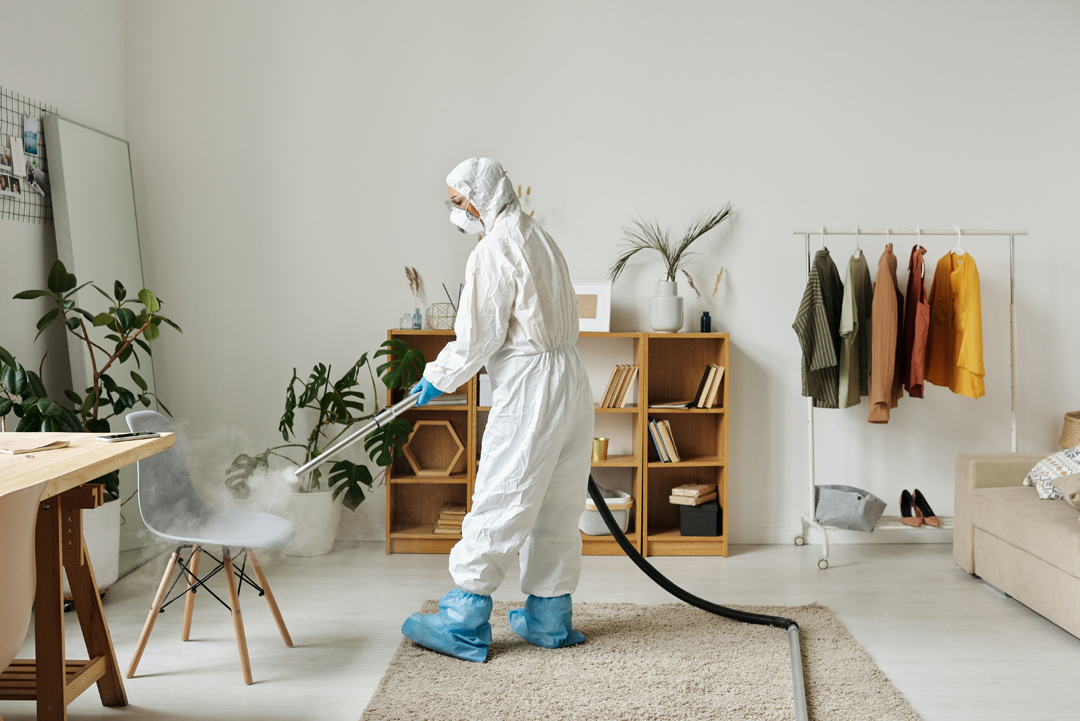The rate of coronavirus infections may have decreased, but the infections are still happening in various parts of the world. As such, it is important to be careful and learn how cleaning can help prevent the spread of the virus and what steps you can take to reduce the risk of infection in your household.
Covid-19 is primarily transmitted from one individual to the next through small saliva droplets or other bodily fluids that float in the air following a sneeze or a cough. Contaminated surfaces and objects can play a role in the transmission of the virus. The actual role they play in the transmission is not entirely clear, but they certainly play one in related viruses like MERS and SARS. Therefore, it makes sense that an object contaminated with coronavirus could pass it on. An example is when an individual touches the surface or object, and then touches their mouth, nose, or face without cleaning their hands.
So, if an individual at risk of having the disease has been in your household, it is important to clean to minimize the contamination on surfaces and thus reduce the risk of further transmission of the virus. In addition, it will help cut down the risk of transmission of other pathogens.
What is the Difference Between Cleaning & Disinfection?
Many people don’t know this, but there’s a difference between cleaning and disinfection. The former means the physical act of removing organic matter like dirt and germs from objects. Disinfection, on the other hand, refers to using chemicals to kill germs and pathogens on surfaces.
Cleaning is imperative as the organic matter may reduce or inhibit the disinfectant’s ability to get rid of germs.
How Long Will Coronavirus Survive in Your Household?
This is no precise answer to this question, but if the variant is similar to most coronaviruses, then you could be looking at a few hours and potentially several days. The survival duration depends on an array of factors like the surface material, humidity as well as temperature.
What Could be Contaminated in Your Household?
This can be hard to determine as the virus is not visible to the naked eye. When someone sneezes or coughs, particularly if they do not cover their mouth, chances are the surfaces near them will be contaminated. Hands are usually responsible for moving pathogens from one point to another and so, objects that people come into contact with are at the highest risk of contamination.
Objects that are frequently touched including taps, door handles, kitchen cupboards, TV remotes, fridges, phones, iPads, laptops, and computers are usually at the greatest risk of being contaminated.
What Should You Use To Clean and How?
Fortunately, coronavirus is fragile in nature and therefore vulnerable in most conditions. Both heat and detergents, including soap, can render it useless.
If you think a surface is contaminated in your office, you should hire an office cleaning company to help kill the virus. Remember to thoroughly clean your hands after the task, preferably using an alcohol-based sanitiser, and do not touch your mouth, nose, or eyes.
How you go about the cleaning is also important as you don’t want to recontaminate the surface during the process. Work from one side of the surface to the next using the ‘’S’’ shape pattern.
If you’re reusing the cloth, ensure you wash it afterwards and allow it to dry in the sun.
